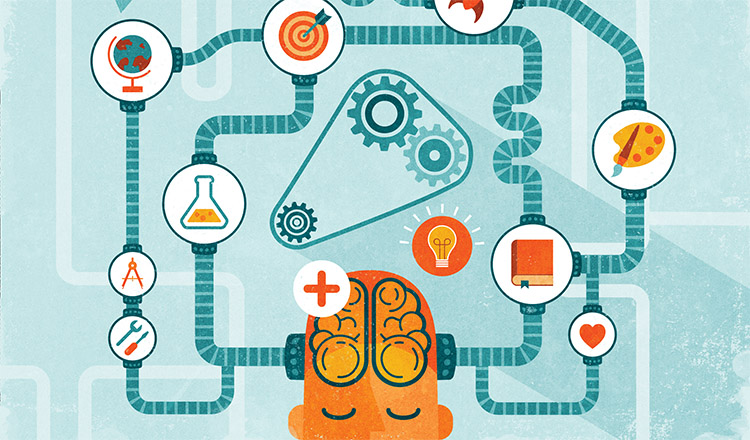Students map out individualized tech degrees
Think of three to five areas in your life that you are passionate about. Now imagine being able to blend those diverse interests into one fascinating career path. That’s what the transdisciplinary studies major at Purdue Polytechnic Institute offers to students. In May, a handful of students became the first to graduate with transdisciplinary studies degrees.
Traditionally, college students select a specific major, then take a prescribed set of courses to learn theory and skills in that major. The transdisciplinary studies program flips that notion upside down, focusing first on students’ passions. The courses then become a consolidation of all the students’ interests, knowledge, and skills.
“Transdisciplinary studies is a degree program that gives students more flexibility to take classes outside of a particular area,” says Jacqueline Brown, director of advising for transdisciplinary studies. For example, one of Brown’s advisees wants to combine arts, computer graphics, engineering, and Spanish. “It’s really very diversified. They have more autonomy to branch out and focus on something that interests them.”
The program was developed after instructors recognized a few years ago that the world of technology is changing so rapidly that careers that pop up in five to 10 years may not exist today. They realized a specific major may be too rigid for some students’ future careers.
Students are paired up with a faculty mentor in addition to their adviser. The trio works together to develop a path for the student. Students still take the core university requirements. Transdisciplinary studies has required and elective courses, just like other majors. But the courses are more flexible and focused on individual and team projects.
Furthermore, the instructors have the ability to change up teaching styles quickly. They may present a lesson or theory to students, then immediately move over to a lab so students can test out the theory. If students are struggling on a lab project, they can stop, move to a set of couches in a seminar space, and brainstorm solutions together.
The program aims to teach students critical soft skills like collaboration, effective communication, and empathy. “A lot of companies are looking for soft skills, and this type of program helps to develop those,” Brown says. At the same time, students continue to learn valuable technology and engineering skills.
The program also teaches students how to consider the societal implications of their work. In the past, new technology has changed human behavior in just a generation or two — think smartphones and social media. “It’s not clear that we really understood what the potential ramifications of all of that could be,” says Jeff Evans, associate professor of electrical and computer engineering technology. And the college wants to change that.
Aubrey “AJ” Hocker (T’18), who graduated in May, remembers an early assignment to build a toilet to use in a developing country. Beyond engineering an effective design, the teams had to take the uniqueness of that society into account, researching the country or city to determine their needs, the challenges, and their culture.
Transdisciplinary courses educate students on cultural understanding and human-centered design, teaching them how to build products and solve problems by thinking of the unique aspects of the people they’re creating for. The aim was that “we don’t become blind engineers, developing something just for function, but we design for humans to use,” says Hocker, who graduated with a transdisciplinary studies degree with a focus on aeronautical engineering technology and a minor in psychology.
Through working on teams, Hocker discovered he liked figuring out how people think and work, using that knowledge to encourage them in their particular task. “I liked to be the negotiator,” he says. “I had the patience to talk to people when they got upset or something.” After his sophomore year, he was named the team leader on every project he worked on. “I never thought of myself as a team leader. It was a shared vision,” he says. Instead, he thinks of himself as a team facilitator.
During their junior year, transdisciplinary studies students focus on a yearlong project of their creation. In their senior year, they work on a team-based capstone project in collaboration with a company or organization. Hocker’s capstone team of seven students created an automated solar panel cleaner for Lawrence Livermore National Laboratory in California. Dust collects on solar panels, but cleaning the panels with water is expensive, plus the water can heat up and leave crystals. The team developed a type of vacuuming robot that moves from panel to panel to clean them with little to no water.
In addition to grades, transdisciplinary studies students earn competencies — like scouting merit badges — on their projects. The competencies show the areas students excel in, such as human-centered design, lifelong learning, time management, and ethical awareness. They can demonstrate their value to employers with their competencies and portfolio of projects, as well as the traditional transcript.
Hocker wants to work on airplanes and eventually become an astronaut. He believes the skills he’s learned through the transdisciplinary studies program have set him up well for wherever his career takes him. Or, as he succinctly sums up: “In essence, we learned how to learn.”

